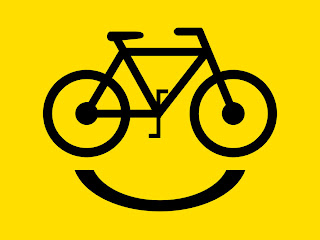Michael Titze is a German psychologist and author of several books on the subject of Therapeutic Humor and Gelotology. He was the initiator of the academic investigation of Gelotophobie (a person's fear of being laughed "at").
According to Titze, persons with Gelotophobie do not associate laughter as having a positive meaning or value. They do not exhibit Mitvoraussetzung (joy, exhilaration and exuberance).
In fact, the laughter of others (even when not masking negativity such as in sarcasm or personal attacks, cultural, gender, or otherwise) threatens their self-esteem. Clinical observations indicated that these people primarily suffer from the fear that their social partners will laugh at them. These people constantly look for signs of disparaging, mocking laughter or behavior around them.
The challenge living with Gelotophobikern has is that it lacks vitality, spontaneity and joy. That positive energie strand that reverberates in a laugh doesn't resonate when someone has been affected by the Gelotophobia bug.
I see this as an epidemic that could be eliminated in a number of ways. Just get on the humor bicycle and take a ride. Tell a joke.
Try Laughter Yoga at home with your kids. Consider it an opportunity to assess whether spontaneous laughter can arise from targeted activities such as this one, joking, or other humorous endeavors.
*Since kids laugh so much more than adults, most people expect laughter from them so they don't freak-out when a kid laughs. Actually, even when a kid puts on an angry face, we still laugh. This tells me that there's a youthful energie strand could positively affect someone with Gelotophia. Maybe there is something to be said with being too grown-up after all. When we were kids, it was actually considered an insult. "Don't act so grown-up!"
Nicholas A. Christakis is a Greek American physician and sociologist known for his research on social networks and the socioeconomic and biosocial determinants of health, longevity, and behavior. In 2009 and again in 2010, he was named a top global thinker by Foreign Policy magazine. In 2009, he was on Time magazine's list of the 100 most influential people in the world.
According to Christakis, our behavior affects people as far away as 4 times removed, at which time the effect wears off. It would appear that our global biosphere community is the embodiment of 4 degrees of separation.
Taking this into account, Gelotophia is "No laughing matter". In my post on Epigrams in the Humor Analysis Academy I shared how death and humor can be seen as two aspects of the same phenomena, with one of those aspects always representing the parody of the other.
Exercising a little ancient wisdom as handed down by our ancestors, we can transform tragic moments and thoughts into something humorous. If as a society we embrace the humor principle, our innate ability to laugh in the face of death can provide a balance against tragedy. This, indeed, would be one of the most pleasurable global studies upon which the world could embark, one that requires only participation. Laughter and humor can be shared by everyone.
Laugh with someone today and they'll be more inclined to laugh with another, and so on, and so on, and so on until the regenerative power of life-giving laughter qubitly unites us all in coherence.
*In 1983, Josef Scheppach started an article dealing with the phenomenon of laughter with the words: (paraphrased) "It's really not ridiculously funny: We Germans lost our humor! We laugh only 6 times a day. 40 years ago, we laughed 18 times at a time when life was in every respect less funny."
Time to get our laugh back...













No comments:
Post a Comment